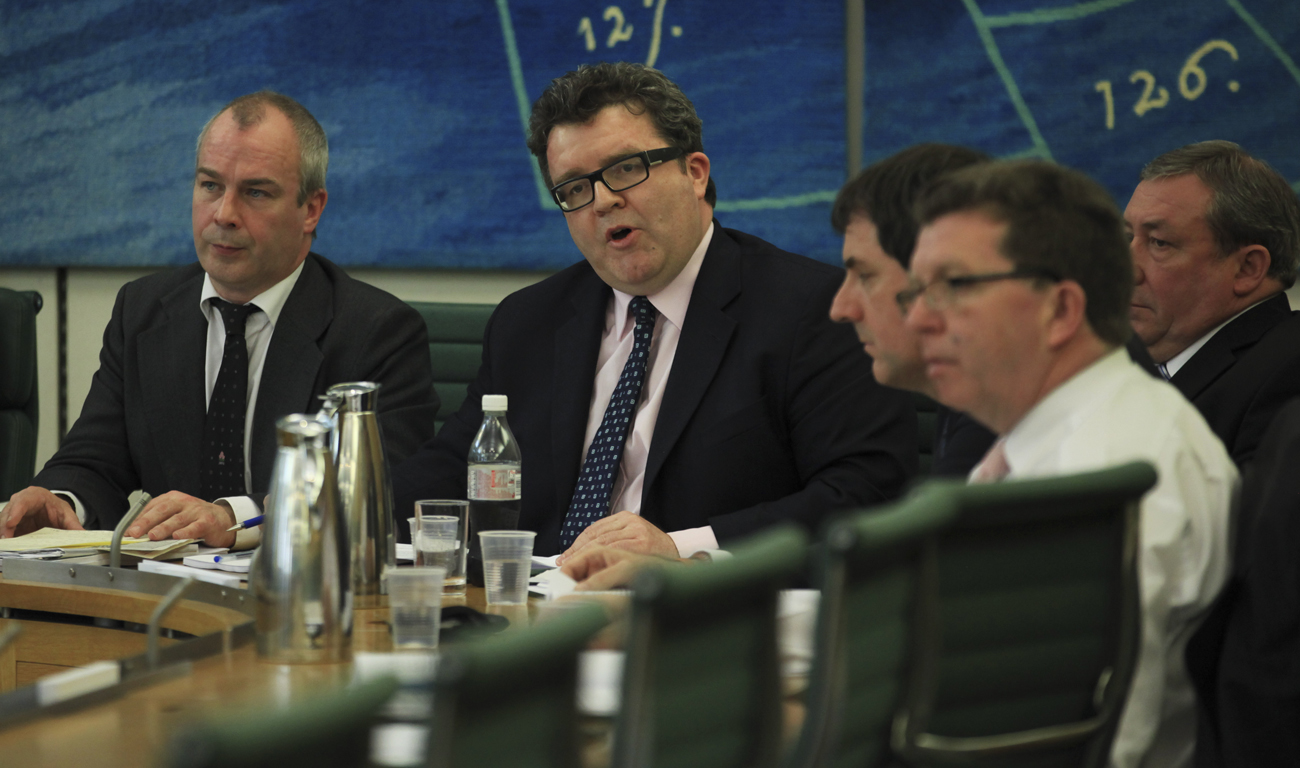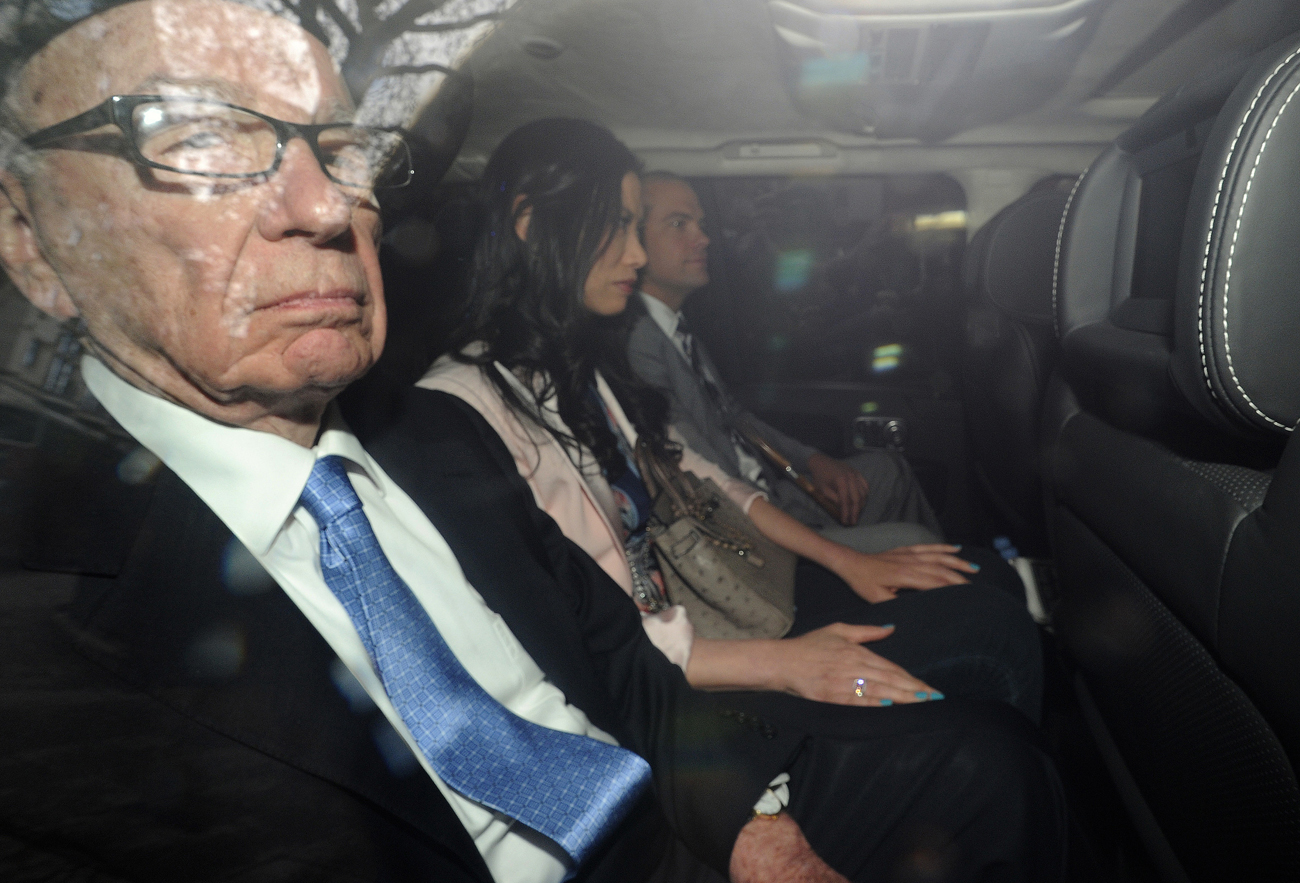Tuesday will be a day likely to weigh heavily in the memory of Rupert Murdoch, 81. It was on that fateful day that the Culture, Media and Sport Committee of the House of Commons submitted a report, completed after their investigation into News International and phone hacking.
The group is a special committee, made up of MPs from across the political spectrum, convened after the phone-hacking scandal brought down News of the World last July.
And it looks like their time was well spent, because the 125-page document doesn’t mess around. Murdoch and his son, James, were probably expecting a slap on the wrist – this much was inevitable, given the mounting dossier of evidence about dodgy practices in their newsrooms being heard by the Leveson Inquiry into media ethics in the UK. What the Murdochs got, as it turned out, will surely have shocked them – it is tantamount to a statement that they are no longer welcome to do business in the UK.
“This report examines whether or not there is good evidence to suggest that the Committee and its predecessor Committees have been misled by any witnesses during the course of their work on the phone-hacking scandal, which continues to reverberate around News International and to have major repercussions for the British newspaper industry as a whole,” is the dry beginning of the report. It goes on to accuse three senior executives at News Corp – Les Hinton, Colin Myer and Tom Crone – of having deliberately misled the committee when they were previously giving evidence into the phone- hacking scandals.
But the report reserves its harshest judgements for the figures right at the top. James Murdoch is essentially accused of incompetence – they say he demonstrated “wilful ignorance” about phone hacking within the newsroom, and that this “clearly raises questions of competence” about him. It’s Murdoch Snr, however, who comes in for the harshest drubbing.
“On the basis of the facts and evidence before the committee, we conclude that, if at all relevant times Rupert Murdoch did not take steps to become fully informed about phone hacking, he turned a blind eye and exhibited wilful blindness to what was going on in his companies and publications,” the report said.
“This culture, we consider, permeated from the top throughout the organisation and speaks volumes about the lack of effective corporate governance at News Corporation and News International. We conclude, therefore, that Rupert Murdoch is not a fit person to exercise the stewardship of a major international company.”
It’s this final line, with the description of Murdoch as “not a fit person”, which has caused the greatest stir. Five Conservatives on the Committee objected to the phrase, which MP Louise Mensch described as being “stuck in on the basis of no evidence presented to the committee whatsoever”.
It’s not surprising that the Tories would be more worried about being mean to Rupert: there are close ties between the Murdochs and the top brass of the Conservative party, with Prime Minister David Cameron being a “genuine admirer of Murdoch’s business skills”, according to the Guardian. As such, the Murdoch scandal is a real political gift for the opposition Labour party, which can use it as an example of a metaphorical springboard for the Tories cosying up to evil big business at the expense of the Englishman on the street.
The Tories were outvoted on the “fit person” question, however, by their Labour counterparts, with MP Tom Watson – who has been the indefatigable engine behind the phone-hacking inquiry from the start – saying: “There is a judgment you have to make about these reports, whether you go for a weaker report and gain unanimity or stand up for what you steadfastly believe.”

Photo: Labour MP Tom Watson speaks at the Department of Culture Media and Sport press conference announcing a cross-party report on phone hacking at Portcullis House in London on 1 May 2012. REUTERS/Olivia Harris.
In essence, this amounts to a confession that the line’s inclusion was symbolic: a way of upping the ante rather than a statement of fact. Watson has made no bones about the fact that he is gunning for the Murdochs – he has just published a book tendentiously titled Dial M for Murdoch: News Corporation and the corruption of Britain, alluding to Alfred Hitchcock’s film Dial M for Murder.
The fact that there was this party-specific squabble about the wording is important because it is going to dilute the impact of the report. Mensch argued that, as a result, “it will be correctly seen as a partisan report, and will have lost a very great deal of its credibility”.
This is almost certainly the line that News Corp will stick to in its defence in the coming days. In this respect, Labour has bungled, possibly unduly influenced by Watson’s vendetta. It may have been more effective to sign off a condemnatory report endorsed equally by all parties.
Watson, speaking after the release of the report, said this political bickering was a red herring: “The truth is that whatever we have said in our report and however you choose to report it, the public have made up their minds: powerful people were involved in a cover-up and they still haven’t accepted responsibility”.
The question is, what happens next? The only response from News Corp so far has been a short statement saying it is “carefully reviewing” the report and will respond shortly. It added that the company “fully acknowledges significant wrongdoing at News of the World and apologises to everyone whose privacy was invaded”.
The MPs’ report has no binding effect – it won’t land Murdoch in jail. Not yet, at least, but it does make it clear that it is within the committee’s power to ask the House of Commons to decide whether the false testimony provided to it amounts to a contempt of Parliament and, if so, what the punishment would be. One option is that the witnesses who lied to the committee might be forced to appear before Parliament to apologise – which the Telegraph reports would be a first for more than half a century.
Its likeliest impact, though, is to simply discourage Murdoch from doing business in the UK, especially on the back of his failed bid to buy broadcasting company BSkyB. There are reports that he is already trying to divest himself of British interests. In the UK newspaper division, this amounts to the Sun, the Times, the Sunday Times and the Sun on Sunday – all ferociously powerful players in British media, so insiders will be watching with great interest to see who he turns them over to.
In the US the phone-hacking scandal has not received as much attention, so it won’t have damaged him there. Michael Wolff notes in the Guardian that, as much as the News Corp shareholders may be chafing to get rid of the Murdoch taint, they can’t: as long as share prices stay vaguely viable, the Murdochs have control over the business.
Given the impressive range of newspapers Murdoch owns worldwide, it made for an interesting exercise seeing which papers reported on the committee’s finding yesterday. The Wall Street Journal did so at length. The tabloidy New York Post showed no signs of covering it, running with a shouty “Blaze Kills NY Family” headline.
It was much the same over at the Sun, which gave prominence to an alarmist story about a mother who died after taking a party drug and an item about Victoria Beckham leaving her son behind accidentally on the school run.
But the Murdoch news was the top item for the Guardian, the Independent and the Telegraph. Business as usual for Britain’s newspaper wars. DM
Read more:
- Select committee phone-hacking report: what they said about key figures, in the Guardian.
- The full Commons committee report.
Photo: News Corporation Chief Executive and Chairman, Rupert Murdoch, leaves with his wife Wendi and son Lachlan after giving evidence for the second day at the Leveson Inquiry at the High Court in London on 26 April 2012. REUTERS/Paul Hackett.





